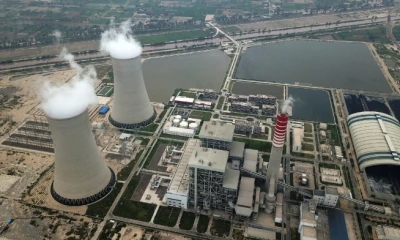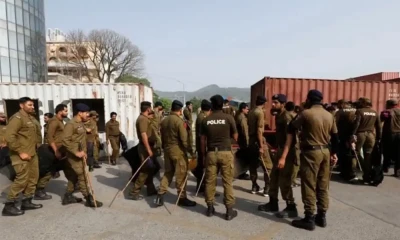Regional
Why Taiwan is 2024’s first big election to watch
The upcoming presidential race comes down to one issue: China.
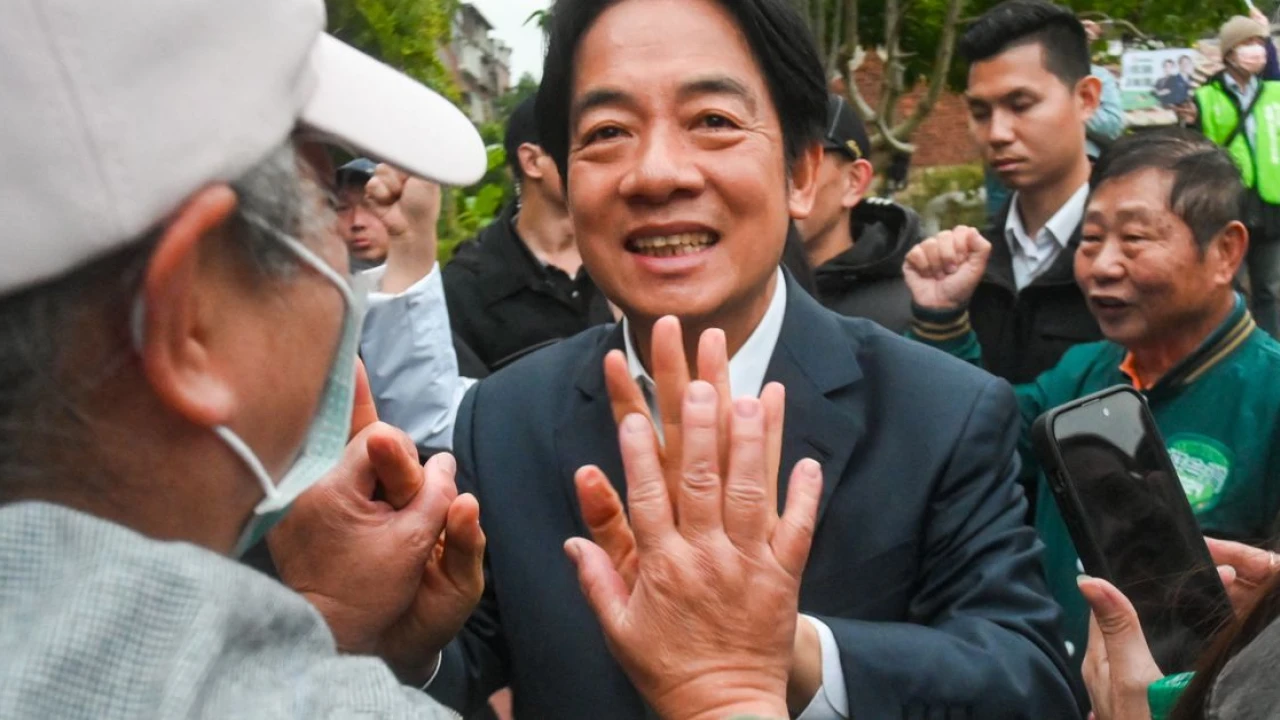
Even amid a historically packed global election calendar in 2024, next week’s presidential contest in Taiwan will be one of the most closely watched and significant. The political future of the island and its historically fraught relationship with China — by far the main issue for voters this year — will have consequences not just for Taiwan’s nearly 24 million people, but for global security and prosperity.
China views Taiwan as a rebellious province, rather than an independent country, and Beijing’s longstanding position is that the two should be reunified. Chinese President Xi Jinping recently described this reunification as a “historical inevitability” in his New Year’s address.
While China’s official position has been that this reunification — something Taiwanese voters overwhelmingly oppose — should be accomplished by peaceful means, it has not ruled out using force and has stepped up military and economic pressure on the island. This has alarmed governments and military leaders around the world, given the real possibility that a war over Taiwan could draw in other countries including the United States and devastate the global economy.
Underlining the stakes, a senior Chinese official warned Taiwanese voters this week to make the “correct” choice, describing the election as a decision between “peace and war, prosperity and decline.”
China on the ballot
The January 13 election pits current Vice President Lai Ching-te, also known as William Lai, of the Democratic Progressive Party (DPP) against Taipei Mayor Hou You-ih of the Kuomintang (KMT), as well as third-party candidate Ko Wen-je, of the Taiwan People’s Party (TPP).
Lai has been leading in the polls throughout the election, and benefited when an attempt by the two opposition parties to form a unity ticket collapsed in a messy public spat in November. But the race has been tightening in recent weeks — Lai led by 5 points at the end of December. “Most people expect Lai to win, but I wouldn’t rule out a surprise,” said Bonnie Glaser, managing director of the Indo-Pacific Program at the Washington-based German Marshall Fund.
In other places, voters might be debating taxes or social issues or government spending. But Taiwanese politics hinges on one subject.
“Every election is ultimately about China, which makes the two parties big tents on everything else,” Nathan Batto, a professor of political science at Taiwan’s Academia Sinica, told Vox. Supporters of one party “might be for higher taxes or lower taxes, for gay marriage or against it. The fundamental cleavage is China.”
The KMT is descended from the nationalist party that led mainland China for two decades until retreating to Taiwan after the communist takeover in 1949. The KMT controlled Taiwan as an autocratic, one-party state until the island’s bumpy transition to democracy in the 1990s.
Though the KMT long presented itself as the legitimate government not only of Taiwan but mainland China, ironically it is now the party that favors maintaining closer economic and political ties with Communist Party-ruled China. The DPP, which has held the presidency since 2016, argues that Taiwan is too reliant on the mainland and should build closer ties with other international powers. (The more recently founded TPP has tried to forge a middle ground between the two, with mixed success.)
Under outgoing DPP President Tsai Ing-wen, Taiwan deepened its relationship with the US, securing billions of dollars in new arms deals from Washington. The Tsai administration also experienced the most serious crisis in the Taiwan Strait in years when then-House Speaker Nancy Pelosi visited the island in August 2022. Pelosi was the highest-ranking US official to come to Taiwan since 1997, which prompted China to respond with live-fire military drills around Taiwan while Pelosi was present.
While the current election campaign in Taiwan has been bitter and polarizing, the debate itself takes place between very defined and fairly narrow guardrails.
“More than 80 percent of our people oppose reunification now,” said Shen Ming-shih, deputy CEO at the Institute for National Defense and Security Research, a Taiwanese think tank. “If a political party tried to revive the idea, they would be rejected immediately,”
At the same time, neither party advocates declaring full independence, a highly provocative move that might risk war. In recent debates, the DPP’s Lai has had to defend past statements in which he described himself as a “pragmatic worker for Taiwan independence.” Nowadays, Lai says he subscribes to President Tsai’s position that there is no need to formally declare independence since the island “is already a sovereign, independent country called the Republic of China.” In other words, Taiwan is a de facto independent state, albeit one that is only formally recognized by a handful of small countries.
Lai has argued that the KMT’s embrace of Beijing is actually the more dangerous path, and would put the country’s hard-fought sovereignty at risk. “Instead of countering the communists, they now befriend the communists,” he has said.
If it returns to power, a Kuomintang government would be likely to try to lower the tensions across the Taiwan Strait and promote more trade, tourism, and cultural exchanges between the two countries, all of which have declined under Tsai’s administration. But Batto is skeptical that a KMT win would dispel tensions altogether. The last time the KMT was in power, from 2008 to 2016, then-President Ma Ying-jeou took a more conciliatory tone and forged a number of trade deals with China, but Beijing was ultimately disappointed by the public backlash this brief detente provoked in Taiwan. In the years since, China under Xi has become even more authoritarian, widening the political gap with a highly democratic Taiwan.
“It may be that [Beijing has] given up on the idea of achieving unification through winning at Taiwanese domestic politics,” Batto said. “They’re certainly not making any internal compromises to their own positions to build a constituency here.”
Dialing up the pressure
Shen notes that in years past, Xi often played up the possibility of a “one country, two systems” model for Taiwan, referring to the arrangement by which Hong Kong, when it reverted to Beijing’s control in 1997, was promised a degree of political independence while being formally part of China. But Xi’s recent statements, including both his New Year’s address and tough remarks about Taiwan during a recent meeting with President Joe Biden, showed the Chinese leader’s “determination to accomplish reunification.” And the promise of “one country, two systems” lost all credibility after Beijing-backed authorities cracked down on Hong Kong’s democratic opposition in 2021.
The trendlines in Taiwanese politics are certainly not heading China’s way. According to recent polls, 66 percent of the population now identifies as solely Taiwanese, as opposed to 28 percent as both Taiwanese and Chinese and just 4 percent as solely Chinese. (Notably, only 2.3 percent of Taiwan’s population is Indigenous, and not ethnically Chinese.) This trend is particularly pronounced among younger Taiwanese, including those whose grandparents or great-grandparents fled communist China.
While there’s still significant trade across the Taiwan Strait, and Taiwanese companies like iPhone-maker FoxConn are major players in the mainland economy, the number of Taiwanese workers in mainland China has been falling steadily in recent years. And while military tensions between the two are hardly new, China’s growing military and economic power has allowed it to dial up the pressure in recent years.
This pressure campaign has included flying an increasing number of military aircraft into airspace around the island, sometimes up to dozens in a day. Taiwanese officials have also claimed the government faces millions of cyberattacks per month, with about half of them believed to originate in China.
China has also launched a campaign to use diplomatic pressure and financial inducements to encourage the remaining countries that have formal diplomatic relations with Taiwan to drop them and recognize Beijing. Nine countries have dropped their recognition of Taiwan since Tsai came to power in 2016. Just 13 countries remain, most of them small island states in the Pacific or Caribbean.
China still has ways to dial up that pressure further, including interfering with trade, either through a full blockade or by pressuring companies to avoid shipping to an island that is highly dependent on imports of food and energy.
“China’s strategy has long been to try and erode the confidence of the people of Taiwan and and induce a sense of psychological despair,” said Glaser. The hope in Beijing, Glaser says, is that Taiwan’s population will reluctantly conclude that “the best future is one in which they are part of China in some way.”
The toll of war
That’s how China’s wait-it-out strategy might work. But there is also the disturbing possibility that Xi, or one of his successors, could lose patience with Taiwanese intransigence.
Xi has said repeatedly that the task of reunification should not be “passed on from generation to generation.” During his recent summit meeting with Biden, Xi emphasized that he was still committed to peaceful reunification but, according to US officials who were present, “moved immediately to conditions that the potential use of force could be utilized.” Former US Indo-Pacific commander Adm. Phil Davidson suggested in congressional testimony in 2021 that China is likely to move on Taiwan “in the next six years.”
Such a war, if it did come, could make the Russian invasion of Ukraine look small by comparison. Some analysts have suggested an invading force of 1 million to 2 million troops might be necessary. The war could involve the United States, as well. Under what’s known as the “one-China policy,” the US technically recognizes Taiwan as part of China and doesn’t have formal diplomatic relations with Taipei. But in practice, Washington has become Taiwan’s most important political backer and supplier of military equipment.
The US hasn’t made clear as an official matter of policy whether it would come to Taiwan’s aid if the island were attacked, a stance known as “strategic ambiguity.” But President Biden has said on three separate occasions that the US has a commitment to defend Taiwan, and though the White House walked back these statements each time, growing tensions between Washington and Beijing may make US involvement more likely. Many analyses of a potential conflict have suggested that China might even preemptively strike US bases in the Pacific to hamper the American response.
The human toll of such a war would be staggering. A recent wargame by the Center for Strategic and International Studies found that while a US-led international force, presumably including East Asian allies like Japan, could defeat the Chinese military in a conflict over Taiwan, in just three weeks of fighting, the US could lose half as many troops as in 20 years of fighting in Iraq and Afghanistan. In the CSIS scenario, the US was projected to lose two aircraft carriers and 10 to 20 large surface ships — the kind of losses not seen since World War II. And this is even without taking into account China’s growing nuclear arsenal.
While the fighting would likely be contained around Taiwan, the economic impact of a war, or even just a full-scale Chinese blockade of the island, would be felt worldwide. Taiwan’s dominant company, TSMC, produces the microchips used in nearly all the world’s smartphones, about a third of its personal computers, and myriad other devices. Should these highly sophisticated factories suffer major damage or be destroyed in the course of an invasion, “we’d face an economic crisis globally akin to the disruptions that we saw during the Great Depression,” as Chris Miller, author of the book Chip War, said on The Ezra Klein Show last year.
The world’s reliance on these chips is so great that it has sometimes been called Taiwan’s “silicon shield.” The idea is that the global economy, very much including China itself, is simply too reliant on Taiwan-made semiconductors to risk any action that might take the supply offline. But as the invasion of Ukraine has shown, countries can be willing to incur severe economic costs to accomplish what they see as major geopolitical goals — and reunification is about as fundamental as it gets for China.
Of course, the costs borne by the world pale in relation to those that would be felt by Taiwan in an invasion scenario.
“Internationally, a lot of people look at Ukraine as an inspirational story of resisting aggression and the encroachment of a foreign power,” said Batto. “But here, we see apartment blocks [in Ukraine] being bombed and think, ‘That could be my house.’”
For now, both parties in the election are committed to maintaining the uneasy status quo in the Taiwan Strait, even if they have very different ideas of how to do so. Unfortunately, its massive neighbor across the strait may be less interested in maintaining it.
-
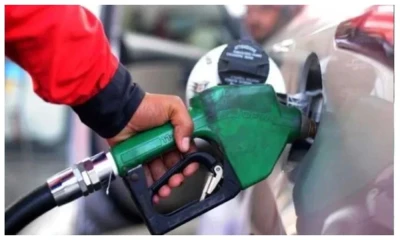
 Business 2 days ago
Business 2 days agoPossibility of petrol shortage in twin cities, Lahore
-
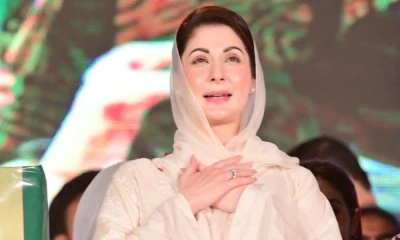
 Regional 1 day ago
Regional 1 day agoMaryam grateful to people of Punjab for not supporting anarchists
-
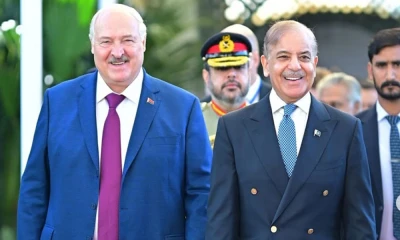
 Pakistan 1 day ago
Pakistan 1 day agoBelarusian President, PM Shehbaz arrive in Murree
-

 Sports 2 days ago
Sports 2 days ago2nd ODI: Zimbabwe set Pakistan target of 146 runs to win
-
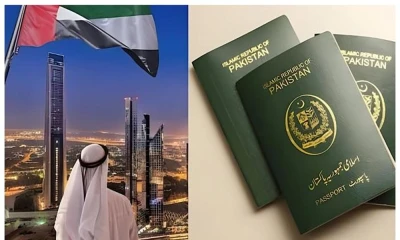
 Pakistan 2 days ago
Pakistan 2 days agoNon-issuance of UAE visa to Pakistanis is lie: Consul General
-
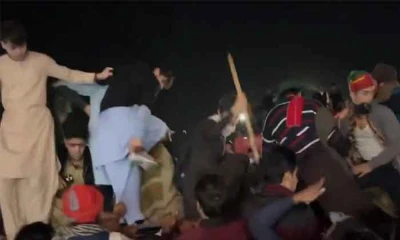
 Pakistan 1 day ago
Pakistan 1 day agoList revealed of injured, deceased brought to hospital in PTI protest
-

 Pakistan 1 day ago
Pakistan 1 day agoNo revolution in history vanishes as quick as yesterday: Info Minister
-
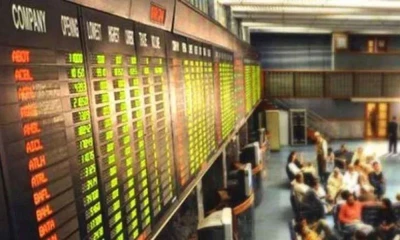
 Business 2 days ago
Business 2 days agoBloodbath as PSX crashes amid heightened political situation




